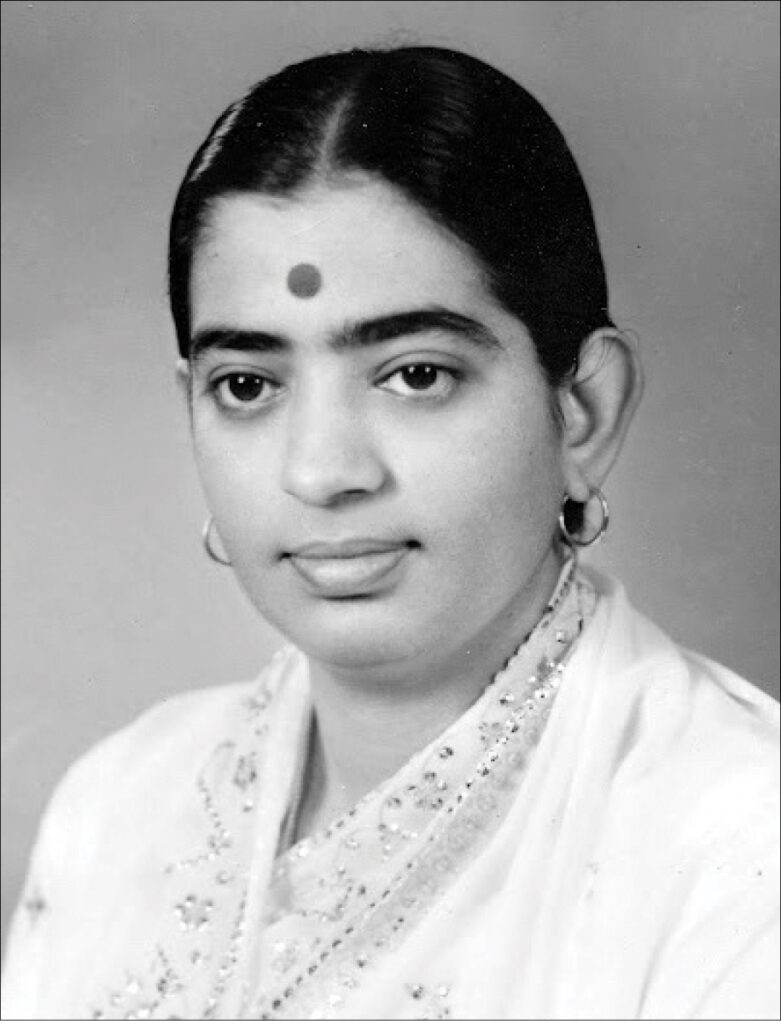Her voice is bewitching,” said melody queen Lata Mangeshkar about P Susheela in 1969. The occasion: An event in Madras hosted by AVM chief Saravanan Chettiar to honour P Susheela on her winning the first-ever national award for best female playback singer. (The song: Paal polave in the film Uyarndha Manidhan.) Lata presented Susheela with a miniature veena on behalf of AVM and later visited her at her home.
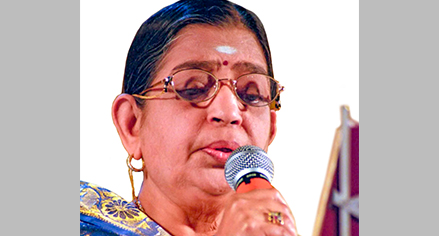
Lata took to Bombay a collection of Tamil songs, and showered praise on the compositions and the songs, particularly those in Pasamalar and Pava Mannippu.
When Susheela visited Lata in Bombay, she was welcomed with so much warmth and affection that she said: “There are actually five Mangeshkar sisters including one in the South.” Asha Bhosle took to addressing Susheela as Didi. She once sang three Susheela songs at an event in Chennai.
If Lata was Bollywood’s greatest music legend, Susheela is the No 1 female playback singer of the South, who enjoyed a scintillating 60-year musical career that began in 1952 and encompassed 11 languages. Her peak period was the 1960s and 1970s, when there was hardly a film that didn’t feature her. She won the national award for best playback singer five times — in 1969, 1971, 1977, 1982 and 1983 (twice for Tamil songs, thrice for Telugu) — and numerous state government and lifetime achievement awards. She got the Padma Bhushan in 2008.
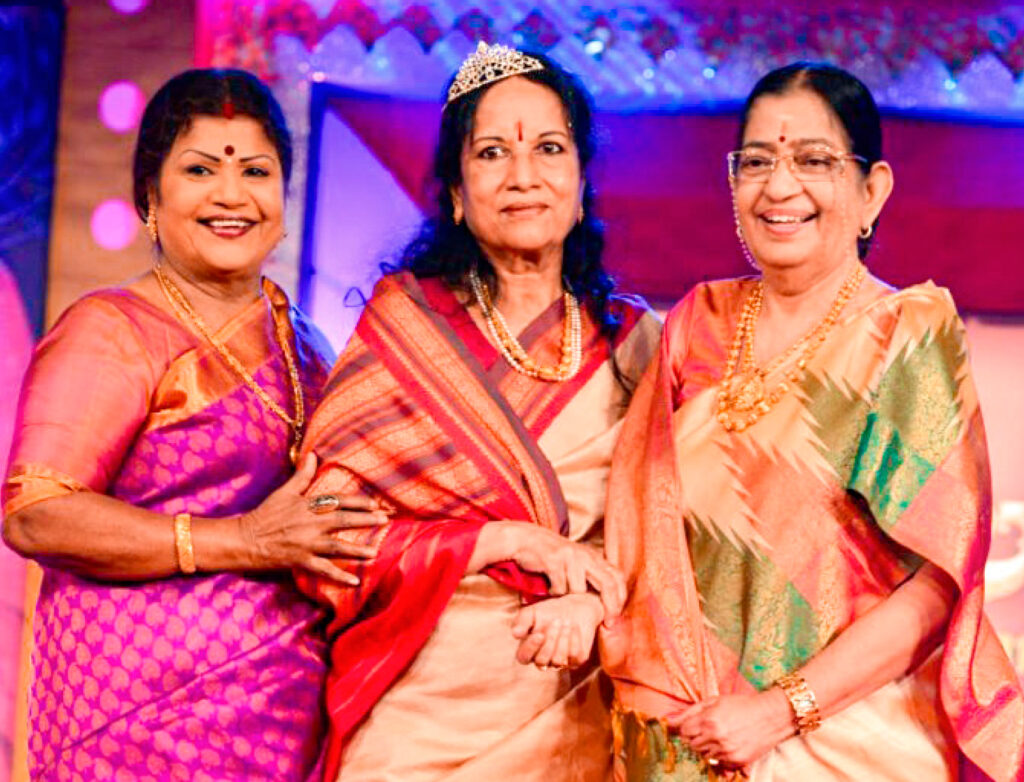
In 1970, Susheela and TMS (T M Soundararajan) were asked to record the official Tamil Nadu state song Neerarum Kadaludutha. It has been played at all official events ever since.
In 2016, at the age of 80, Susheela made an entry into the Guinness World Records for having sung 17,695 solo, duet and chorus-backed numbers in 12 Indian languages, including Tamil and Telugu, since 1960. The record was made possible by her fans and aficionados who organised the onerous documentation necessary. (Guinness recognises a song only if it has sold at least 100,000 records, as confirmed and authenticated by recording companies.)
Susheela’s entire musical oeuvre comprises over 40,000 songs. “Even her most ardent fan would not have listened to more than 35 per cent of her songs,” says IT expert and music critic Sriram Lakshman, who belongs to Susheela’s inner circle of friends and volunteer helpers.
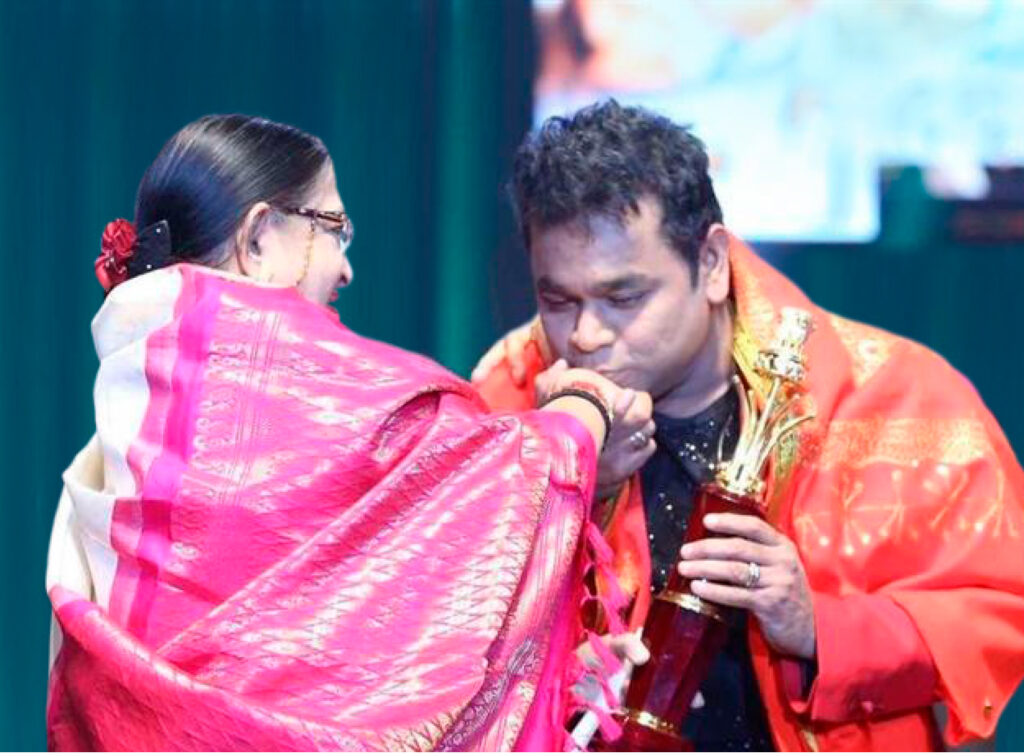
Her songs bring to mind some of the most memorable sequences and performances of Tamil cinema on which this article is focusing.
“If there is a singer I adore, it is Susheela,” said A R Rahman who invited her to inaugurate a division of his K M Music Conservatory. Tamil poet and lyricist S Vairamuthu says if he is given a last wish before death, it would be to listen to a Susheela song in solitude with doors closed.
He says four factors make her a great singer. Her “grasping power” (grasping what the composer wants, a situation requires and how an actor performs); a voice that is sweet and unique; clear and flawless pronunciation despite her mother tongue being Telugu; and her expressiveness and ability to emote with her voice. It can give eloquent expression to any emotion or feeling — be it love, joy, ecstasy, grief, melancholy, devotion, exuberance, serenity, introspection, or family affection.
In 2016, at the age of 80, Susheela made an entry into the Guinness World Records for having sung 17,695 songs in 12 languages since 1960.
Vairamuthu says when he wrote the lyric for the song Kannukku mai azhagu for Pudhiya Mugam (1993), he told A R Rahman that only Susheela should sing the song. Why, asked Rahman. “The word azhagu occurs often in the song. Only Susheela can pronounce it right.” Rahman consented.
Susheela sang over 300 songs in 100 films in five languages for former CM Jayalalithaa. In 2004, for receiving an Anna award, when she approached the dais, Jayalalithaa got up, hugged and kissed her on both cheeks. Susheela was invited to each of the three oath-taking ceremonies of Jayalalithaa as CM.
Some great Susheela songs
Here’s a short selective list of personal favourites:
- Brindavanamum nandakumaaranum — 1955. (A M Rajah and P Susheela in Missiamma. Composer: S Rajeswara Rao) A gently melodious romantic duet which has captivated listeners ever since. A M Rajah’s silky soft voice (often compared to Talat’s) matched Susheela’s honeyed charm to create magic.
- Vinnodum mugilodum — 1957. (with C S Jayaraman in Pudhayal. Composers: Viswanathan-Ramamoorthy) A great music duo presents a hypnotic melody as the Sivaji-Padmini duo romances on the Elliott’s beach in Chennai.
- Ennaipol pennallavo — 1957.(Vanangamudi. Composer: G Ramanathan) “Aren’t you a woman like me?” Savitri beseeches a temple deity in Susheela’s vocals. If her voice didn’t melt the deity, nothing else could have.
- Amudhai pozhiyum nilave — 1957. (Thangamalai Rahasyam. Composer: T G Lingappa)
- Mullai malar mele — 1958. (with TMS in Uthama Puthran. Composer: G Ramanathan) A scenic musical masterpiece where Sivaji and Padmini go lyrical.
- Unnai kandu naanada — 1959. (Kalyana Parisu. Composer: A M Rajah) Diwali sparklers light up the screen, so does Susheela’s effervescence. This Gemini Ganesh-Saroja Devi song is a must in every Diwali TV special.
- Kaathalile tholviyutraal — 1959. (Kalyana Parisu. Composer: A M Rajah) Poignantly conveys the angst of failure in love. Singer Rajah’s debut as composer in this film was a stunning success.
- Athaan ennathaan — 1961. (Paava Mannippu. Composer: M S Viswanathan)
- Maalai pozhudhin mayakkathile — 1961. (Bhagyalaksmi. Composers: Viswanathan-Ramamoorthy). The song’s first line is about the intoxication of the evening. But it’s Susheela’s voice and Viswanathan-Ramamoorthy’s genius that intoxicate listeners.
- Rajavin paarvai raniyin pakkam — 1966.(with TMS in Anbe Vaa. M S Viswanathan). MGR and Saroja Devi ride a chariot, little angels shower confetti. The song and the film were superhits.
- Mannavan Vandhanadi — 1967. (Thiruvarutselvar. Composer: K V Mahadevan) This visually spectacular song, with Padmini dancing in royal court in front of a 20 ft-high Nataraja statue, is a tour de force of music, dance, choreography and direction.
- Nalandhaana — 1968. (Thillana Mohanambal. Composer: K V Mahadevan). This is a legendary movie, a music-dance-romance epic. The song has melody, drama and fast-paced action.
Evolution of her career
Susheela was born in Vizianagaram to a musically inclined family. Her father was a lawyer, also a veena player. He organised systematic training for Susheela in Carnatic music, often inviting musicians and critics home, and asking her to sing. His ambition was to see his daughter blossom into another M S Subbulakshmi. But she found herself drawn to film music, took part in a number of contests during schooldays, filling cupboards at home with prizes. She obtained a diploma in music from the Maharajah’s Government College of Music and Dance, Vizianagaram.
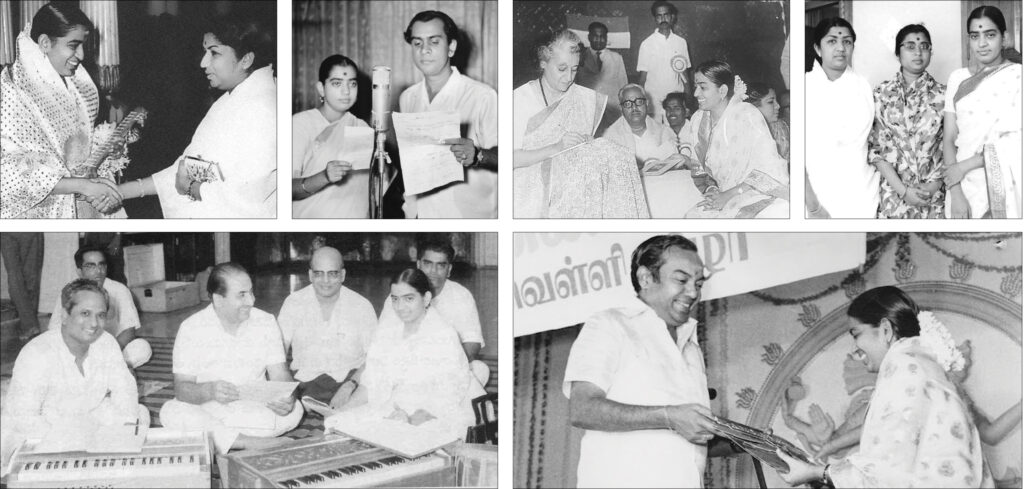
Susheela’s first public performances were for “Pappa Malar,” a children’s radio programme on All India Radio. In 1951, producer P Nageswar Rao asked AIR to recommend a female singer for a children’s film. Susheela was one of five girls suggested by AIR. At the audition, she sang Mohe bhool gaye sawariya, Lata’s emotional scorcher from Baiju Bawra. The producer was a Naushad fan, and he wept. He gave Susheela her first film assignment — a duet with A M Rajah in Petra Thai.
“If there is a singer I adore, it is Susheela,” said A R Rahman who invited her to inaugurate a division of his KM Music Conservatory.
She joined the staff of AVM Productions as a playback singer on their invitation, and was with them for three years. A V Meiyappan organised a special coaching for her in Tamil which was a godsend, and stood her in good stead in her career.
The game-changing year for her was 1955, like 1949 was for Lata. The films Kanavane Kankanda Deivam and Missiamma were released; both were thumping hits, and Susheela’s many songs in the films rocketed her to fame.
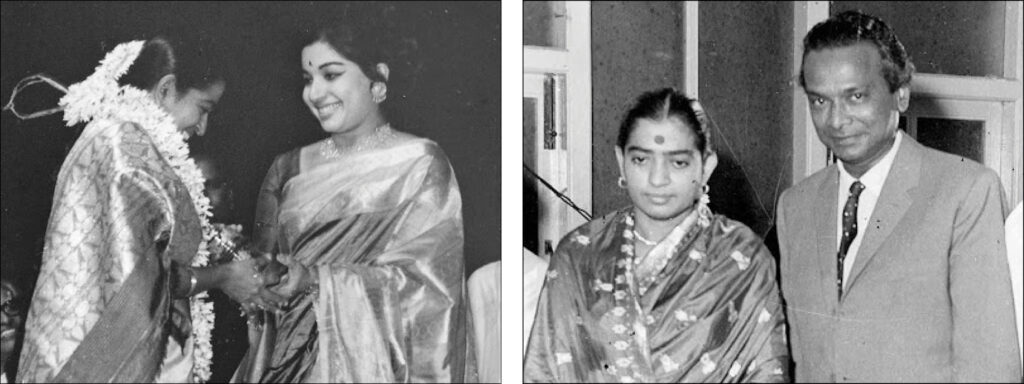
When she entered the world of playback singing, it was crowded with singers such as P Leela, Jikki, M L Vasanthakumari and Jamuna Rani. But Susheela raced to the top pretty quickly. The Sivaji-Padmini starrers Pudhayal, Mallika and Uthama Puthran contained several chartbusters ranging from the romantic to the joyous to the melancholic. Examples: Thanga mohana thamaraiye (Pudhayal), Neela vanna kannane (Mallika), Mullai malar mele (Uthama Puthran). The film Thangamalai rahasyam featured several singers, but the most popular and melodious song was Susheela’s Amudhai pozhiyum nilave. The kind of song that stops you anywhere.
The 1959 Kalyana Parisu (wedding gift) was a career gift for Susheela. She sang two solos and three duets in the film, all of which were evergreen hits. Singer A M Rajah turned composer with this film, and his music was a sensation.
In 2004, for receiving an Anna Award, when Susheela approached the dais, Jayalalithaa got up, hugged and kissed her on both cheeks.
In the 1960s, Susheela was the uncrowned but undisputed queen of playback singing. Almost every film in the decade had a song by her. “Her voice is more fragrant with every song,” said Vaamanan, film music historian. Films like Karpagam, Mannaadhi Mannan, Kalathur Kannamma, Pudhiya Paravai, Kaadhalikka Neramillai, Karnan, Vennira Aadai, Aayirathil Oruvan, Pattanathil Bootham, Anbe Vaa, Vaanambadi, Saraswathi Sabadham, Nenjil Oor Aalayam, Thiruvarutselvar and Thillana Mohanambal made Susheela the numero uno of Tamil playback singing.
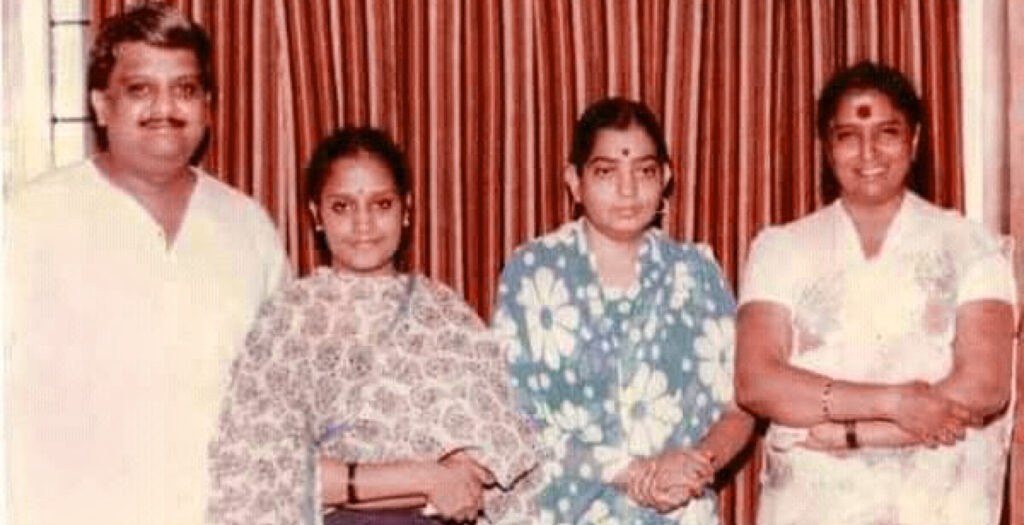
She was the favourite of master composers Viswanathan-Ramamoorthy, K V Mahadevan and G Ramanathan. Top actresses like Padmini, Savitri, K R Vijaya, Devika, Kanchana, Sowcar Janaki and Jayalalithaa recognised that Susheela’s songs built their image and imparted depth, glitter and charisma to their acting performances. She sang many memorable duets with A M Rajah, TMS and SPB.
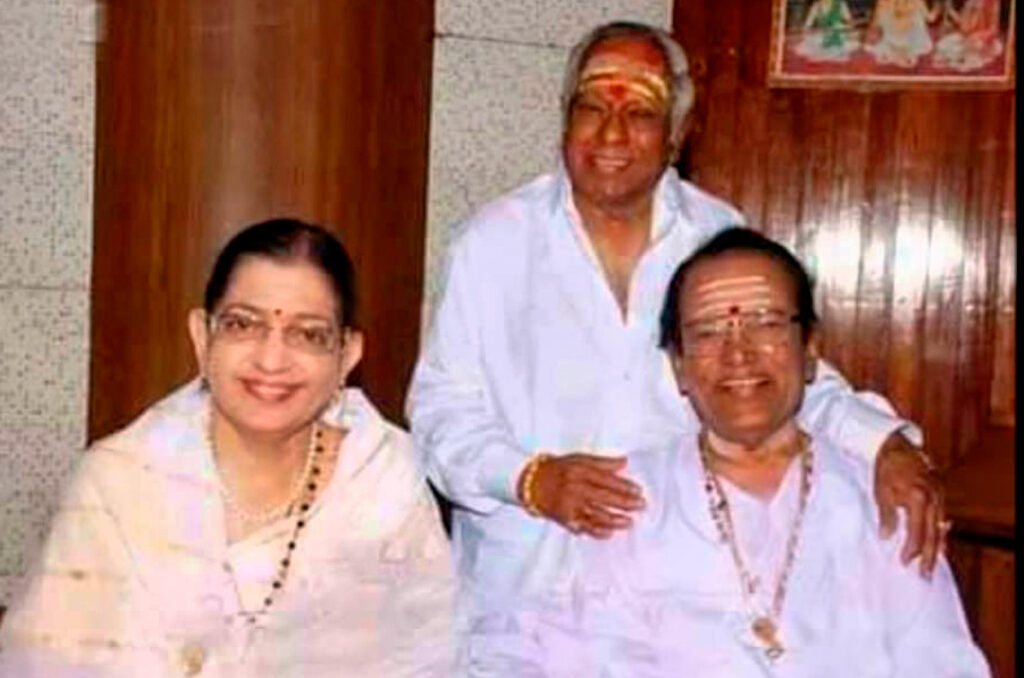
Her form continued during the 1970s when she won several national and state awards and sang in Hindi films too. She remained the first-choice singer of many composers. But Susheela gradually cut down on film assignments and shifted focus to devotionals, recordingover 1,000 devotional songs, and live shows in India and overseas. She drew huge audiences in the US and Canada, Europe and the Middle East. In many cities, the Indian community insisted on providing home hospitality to Susheela and her team.
Lata Mangeshkar took to Bombay a collection of Tamil songs sung by Susheela, and showered praise on the compositions.
In 2008, the P Susheela Trust came into being. It offers monthly pension to musicians in need. Every November, a fundraising musical concert is held and a lifetime achievement award conferred. Awards have been presented to TMS, P B Sreenivas, S Janaki, Vani Jairam, L R Eswari, P Jayachandran, S P Balasubramanyam and K J Yesudas.

“I was born to sing,” says Susheela of her illustrious and fulfilling career which has inspired the entire music world and entertained millions of fans and music lovers. She has also been a role model as a celebrity with her humility and simplicity.
The author is a senior journalist and member of the Rotary Club of Madras South.






